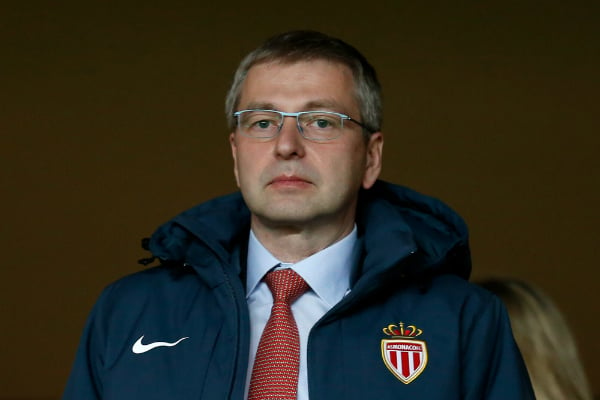Law & Politics
Russian Billionaire Dmitry Rybolovlev Continues His Epic Legal Crusade Over the ‘Largest Art Fraud in History’
Meanwhile, Rybolovlev's Palm Beach real estate deal with Trump is drawing new scrutiny from US authorities.

Meanwhile, Rybolovlev's Palm Beach real estate deal with Trump is drawing new scrutiny from US authorities.

Eileen Kinsella

Russian billionaire Dmitry Rybolovlev is continuing to doggedly pursue his former art advisor Yves Bouvier in an international legal battle that becomes more complex by the day.
Rybolovlev’s latest efforts constitute something of a one-two legal punch. Last week, Bouvier appeared before a Geneva prosecutor over accusations of fraud related to the multi-million-dollar art transactions he brokered on the billionaire’s behalf.
Then, on Friday, Rybolovlev filed a new claim in federal court in New York alleging that Bouvier’s appearance in Geneva should be enough to compel a US judge to release confidential documents that are essential to “the Swiss criminal proceedings” against him.
The international back-and-forth is all part of the Russian mogul’s legal crusade, now entering its third year, to hold Bouvier accountable for what he describes as “the largest art fraud in history.” Rybolovlev claims that Bouvier defrauded him out of approximately $1 billion by inflating the prices for 38 masterworks and “pocketing the difference as profit.”
Through two of his companies, Rybolovlev has employed various byzantine legal strategies—often simultaneously—in cities all over the world. He has initiated proceedings against Bouvier in Monaco, Singapore, the UK, and the US.
So far, each side of the dispute has its own interpretation of the Geneva court appearance and its potential impact on the ongoing saga.
Bouvier’s legal team claims its significance has been overblown. “The only thing that happened was that Mr. Bouvier was notified that the Rybolovlev companies filed a complaint against him,” Ron Soffer, one of Bouvier’s attorneys, told artnet News. He said no criminal charges have been filed, although Bouvier is currently undergoing a tax audit in Switzerland.
The Geneva prosecutor’s office could not be reached for comment. But Rybolovlev clearly intends to use the court appearance as a bargaining chip in his ongoing quest to recover documents related to his most high-profile transaction: his purchase of Leonardo da Vinci’s Salvator Mundi. According to the Russian billionaire, the documents reveal that both Sotheby’s and Bouvier were aware that the art advisor sold him the painting at a major $47 million markup.
Rybolovlev has previously sought to use these sealed documents in a potential civil suit in the UK, but Sotheby’s and Bouvier remain intent on keeping them under wraps. Now, Rybolovlev argues that the documents should be handed over to the Swiss prosecutor “to ensure that they have all relevant information and to assist them in bringing Bouvier to justice.” (Sotheby’s declined to comment.)
Bouvier isn’t the only one under scrutiny, however. Authorities in Washington, DC, are investigating Rybolovlev’s purchase of a pricey Palm Beach estate from now President Donald Trump for $95 million in 2008. Less than two weeks after Rybolovlev’s name appeared in the Kremlin report—a list of officials and oligarchs with close ties to the Russian government who may receive sanctions—Senator Ron Wyden, a Democrat from Oregon, sent a letter to Treasury Secretary Steve Mnuchin requesting “a thorough investigation into any potential money laundering or other illicit financial dealings between the president, his associates, and Russia.”
Ironically, the cause for concern is yet another markup in price: Trump purchased the home in 2004 for $41 million and then sold it to Rybolovlev four years later for an additional $54 million.
Rybolovlev carved up the 60,000-square-foot beachfront property into three lots and stands to make a profit of roughly $18 million if the third lot sells for its asking price. Wyden notes that the first two lots have gone “to shell companies without clear beneficial owners.”
Asked for comment, a representative for Rybolovlev told artnet News: “When the Rybolovlev family trust acquired the property in Palm Beach in 2008, it was made very clear that the purchase was an investment. The transaction was publicly announced and widely covered by the US media. There was no suggestion whatsoever of any impropriety about the purchase. What is more, the investment today remains on track to deliver a significant return to the trust.”